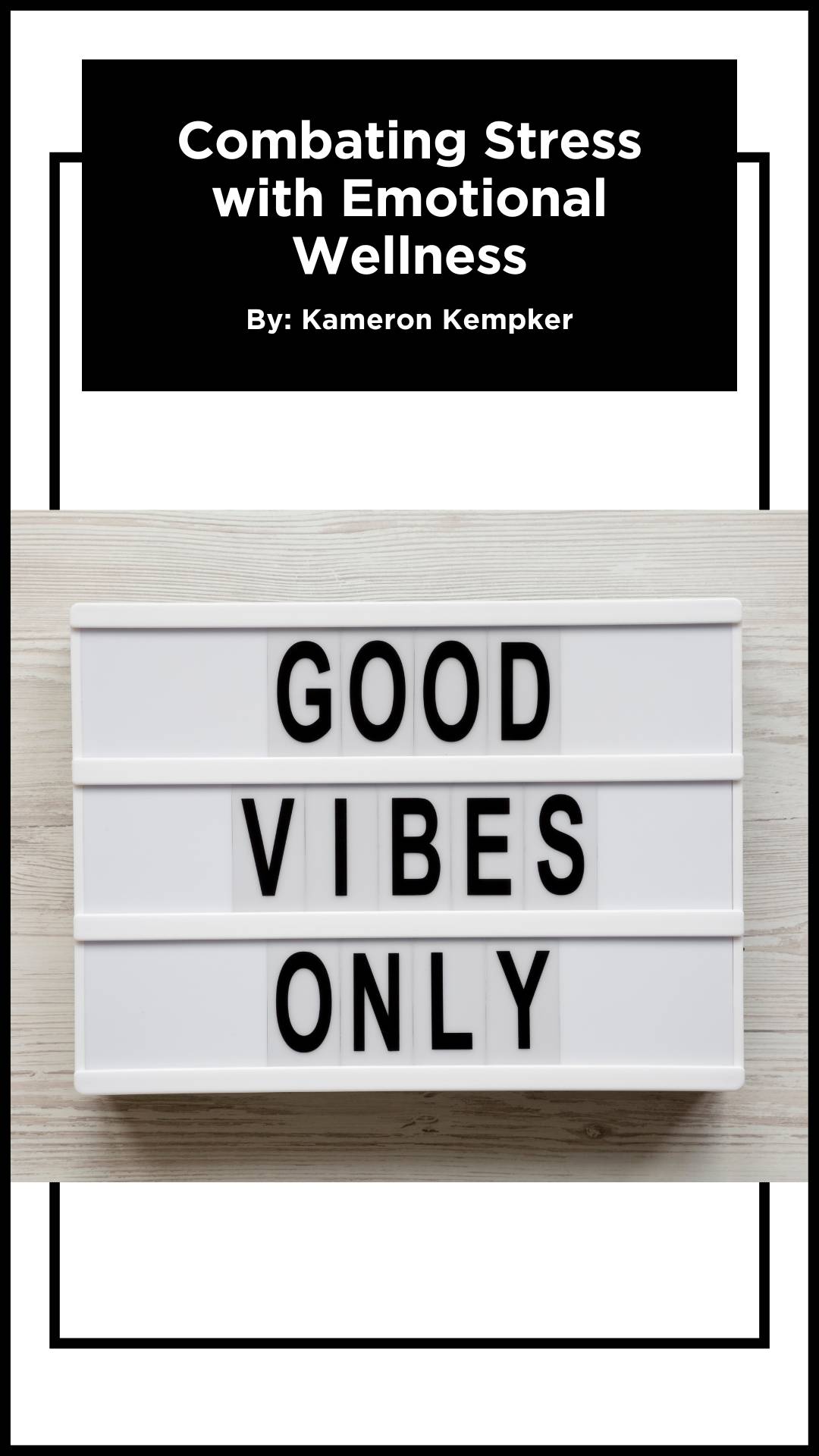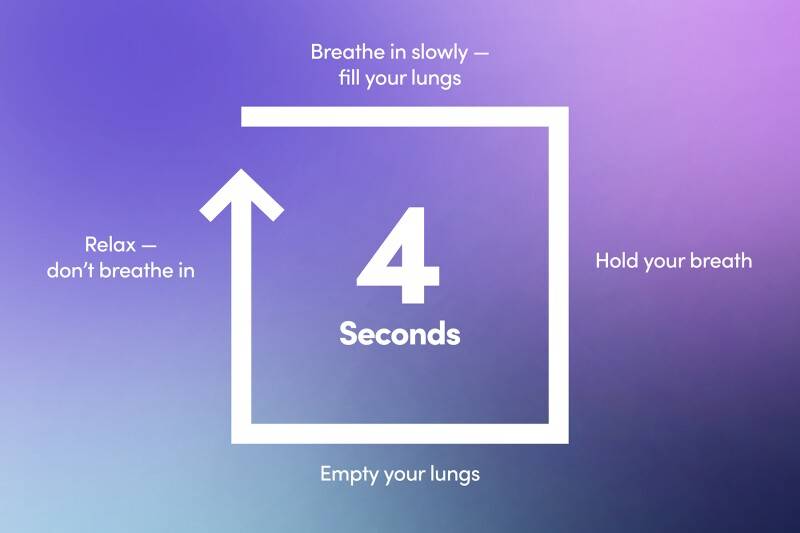Blog
Permanent link for Combating Stress with Emotional Wellness on April 13, 2023
Springtime has arrived in West Michigan, and with it so has the end of the semester rush. Finals week is approaching, and most of us are probably more than ready to feel the relief of being done with the school year. Springtime also ushers in April, the Month of Stress Awareness.
With “exam cram season” just around the corner many of us will experience increased levels of anxiety and stress related to the added pressures of school work. At GVSU Recreation & Wellness our goal is to provide students with the knowledge and tools necessary to account for and improve their overall wellness, as well as in specific domains of wellness. Aligning our goals at Rec & Wellness with the month of April’s Stress Awareness, our aim is to present you with the knowledge and techniques that can help you manage the added stress from the end of the academic year.
Stress
To understand why coping with stress using healthy practices is important, we should understand why stress is aversive to our physical and mental health, especially as it’s related to the added pressures at the end of the semester. Stress that stems from the “exam cram season” is typically linked to decreased sleep, internalized expectations/pressures, lack of positive coping techniques, and/or a combination of these. Experiencing these types of stress can be a hindrance to our mental and physical wellness, causing various physiological systems and emotions to become dysregulated. Some of these symptoms may be reported as:
Emotional
- Increased irritability
- Increased anxiety or depression
- Feelings of anger, sadness, loneliness
Physical
- Decrease in sleep, focus
- Shortness of breath, difficulty breathing
- Muscular tension, discomfort
- Changes in appetite
- Vomiting, nausea
- Illnesses become more common as immune system becomes less effective
As we continue to progress closer towards our final exams, most of us may begin to notice and account for more of the feelings or sensations that are described above. Being able to identify and attribute your stressful symptoms to the correct source is the first step towards being able to identify and apply a coping technique that is effective and healthy for you. Although it may seem overwhelming to address these stressors during such a hectic time, the CDC explains that healthy coping mechanisms can reduce stressful feelings and sensations, whether they are physical and emotional. In short, finding ways to deal with stress that elicit positive emotions and improve physical and psychological wellness are the best ways to decrease stress.
Dealing with Stress
Because some stressors present themselves on an individual basis (not every stressor is universal to all) it is likely that one form of coping is not going to be a universal solution for everyone experiencing stress. One practice each of us can apply on an individual basis, however, is mindfulness. Mindfulness is the process of connecting and becoming aware of the changes in your body in response to different situations/sensations. This process is a very grounding experience and has been linked to decreases in stress, anxiety, and depression.
Here are a few short mindfulness exercises you can do wherever you are to be able to identify and listen to your bodily sensations:
Box Breathing: An exercise used to regulate blood pressure, breathing, heart rate, stress, and anxiety. This exercise targets our respiratory system to actively reduce the amount of cortisol (stress hormone) in our blood stream.
- To do this exercise sit in a chair with good posture (spine in alignment) or lay down flat.
- Follow the graphic at the bottom of the blog post, begin in the top left corner and follow the instructions on the outside of the box as you move along. Repeat these steps, and imagine the circle moving along the perimeter of the box as you go, taking 3-5 minutes or until you feel relaxed and refocused.
5-4-3-2-1: This activity allows us to make time to account for ourselves and our environment, deepening our connection to our bodily sensations.
- In your immediate surroundings, without moving where you are name
and describe:
- 5 things you hear
- 4 things you see
- 3 things you can touch
- 2 things you can smell
- 1 thing you can taste
STOP Practice: A 4-step technique to reduce feelings of overwhelm, stress, and anxiety.
- S: Stop whatever you are doing, stop whatever you are thinking, and dedicate yourself and this moment to practicing mindfulness.
- T: Take a deep breath in and out. Slow down, you may count up or down as you breathe, or even combine other breathing techniques for even better results!
- O: Observe your body. How do you feel physically? Mentally? Observe your surroundings. Focus on small details, like the texture of an object across the room, the unique noises you can hear, etc.
- P: Proceed with intention. Set a time limit for your study session, make sure you’re hydrated, grab your favorite snack, and practice listening to what your mind and body are telling you.
Now that we are aware of how our body might react to the added stress of final exams and how we can use mindfulness to identify those reactions, we can be attentive in our care for ourselves. This time of year is busy for almost all of us, and taking time to hear our body and mind is very important to managing the intense and sometimes overwhelming amount of stress we experience. As you move forward this exam season, I encourage you to use the resources provided in this article to help you, but also refer to more of our great campus resources, as well as experiment with other things that may help you like journaling, exercise, and getting adequate sleep.
Resources
Here are some on-campus resources that are here to serve you during this April Month of Stress Awareness:
- GVSU Counseling Center - Especially around this time of year the GVSU Counseling Center hosts events and activities that are inclusive and educational, and are specifically catered towards dealing with the stresses of exams! GVSU Counseling Center also coordinates with West Michigan Therapy Dogs to bring some support pups to the library, this is a personal favorite and a must for any animal lover who needs a break from their studies. In addition there is an emergency/crisis response available for students.
- GVSU Student Academic Success Center - Success coaching is a great option for those of us who may be looking for more personalized help in approaching their learning. The SASC also coordinates with the other campus resources to organize workshops catered to end of the semester learning.
- GVSU Rec & Wellness - GVSU Rec & Wellness is a multi-faceted resource that offers support to students in multiple different ways. There are free group fitness and yoga classes focused on providing students with a positive outlet for reducing stress. GVSU also offers personalized, individual consultations with Wellness Navigators and Wellness Coaches who aim to help students manage different aspects of their overall wellness like nutrition, time management, and stress.
By: Kameron Kempker, WIT Peer Educator
Image by Ashlee Wadeson on sleep.com
Categories:
General Wellness
Rest
Posted
on
Permanent link for Combating Stress with Emotional Wellness on April 13, 2023.


